- Home
- Jennifer Probst
Our Italian Summer Page 3
Our Italian Summer Read online
Page 3
We walked inside, straight into a living room with dirty beige carpeting and a large chocolate suede couch. A beat-up leather ottoman and a coffee table were the only other furniture besides a few basic lamps and a large-screen TV. The house smelled like coffee, cigarettes, and bacon. I spotted a small kitchenette ahead and a few doors down a short hallway. The walls were covered with various framed record stuff that looked like they were some type of important awards.
Dave headed to the kitchen and came back with a bottle of vodka and a pint of OJ. Freda brought in a few glasses and we all took a seat on the couch. More cigarettes came out while Freda poured hefty servings of liquid breakfast. I put up my feet and sipped tentatively at my vodka. I’d had vodka and rum before, but never this early, and never this much.
Freda took a sip, put her feet up, and tossed me a grin. “Now, this is what life is about,” she declared. “I mean, what the hell are we ever going to use algebra for? And who cares if we know who the thirty-ninth president is? I can’t wait to start working full-time and really live.”
Connor hooked his foot over his knee and nodded. “Yeah, you can learn more about the world by actually reading books on your own and talking to people. Politics is shit. The environment is killing us. People are greedy assholes. Might as well find some pleasure in your own way.”
David tapped his fingers on the edge of the couch, drinking in silence. I turned my gaze to him automatically, wondering why he kind of fascinated me. He seemed to have some deep thoughts but he didn’t throw them out there like Freda and Connor.
“Allegra, what do you want to do when you’re sprung from prison? Join the country club? Have a bunch of babies and marry a rich guy?” Freda asked.
I shrugged, not taking offense at her question. It kind of made sense. They saw me as different from them and they still hadn’t figured me out. Neither had I. “I don’t know. My mom is really strict about my grades. Always pushing college and career goals, like if I end up falling in love and wanting babies before I’m twenty-two, she’d lose her shit and think I’m a loser. Why can’t I make my own decisions about what I want?”
Freda rolled her eyes. “I get it. They want you to be exactly like them—some sort of mini robot—but not do any of the bad stuff they used to when they were younger. They want you to live the lives they never got to.”
I jerked back. I’d never thought about it, but it was a smart observation. My mom used to tell me she dreamed of giving me opportunities she never had, but if she was never around to do anything with me, then who cares? She hadn’t even had time to fall in love and get married. She was actually proud of me not having a real dad. Being born by artificial insemination—via some random dude from a damn catalogue—sucked. It was humiliating and weird, and she’d taken away my right to have a father—or at least grieve not having a father who’s around.
“Is that how your mom is?” I asked Freda, taking a drag on the cigarette. My throat burned but I was beginning to like it.
“Yep. She used to be some big deal at a bank. Talked about Wall Street and stuff, but quit to have kids. Now she’s miserable and wants me to be this financial wiz.” Freda shook her head and laughed. “She’s cray-cray.”
“Same thing at my house,” Connor said. “Endless state tests and college admissions coming up soon. My dad thinks I’m something I’m not. I don’t intend to be trapped in some dead-end job with no vacay just for a paycheck. Fuck that.”
“What are you going to do?” I asked curiously.
“Nothing. Live. Figure things out. I always thought working on a yacht or cruise ship would be cool. Heard it was good money.”
Freda cackled. “You want to travel and go on vacation, not be the hired help.”
“Whatever.”
I turned to David. “How about you? Are you close with your parents?”
David stared back at me for a while, no expression on his face. “What kid is close to their parent?” he mocked.
“David’s dad was a famous musician,” Freda said. “He doesn’t want David to follow in his footsteps. He was on the road most of the time and his wife died a while ago, so he felt guilty and now tries to save his son from the same type of future. All hail drugs, sex, and rock and roll.”
David shot her an annoyed look. “Thanks for sharing my life story.”
Freda grinned. “Welcome.”
Now all those framed records on the wall made sense. “Are you a musician?”
For one moment, something glinted in his brown eyes, an emotion I couldn’t name. “I play guitar,” he said reluctantly. “Write some songs. No big deal.”
“Bullshit,” Connor said. “You’re talented, dude. Been telling you that a long time.”
David shrugged. “Nowhere to play in this town. Once I save enough money, I’m out of here.”
“That’s our plan for the summer,” Freda said. “Connor’s got an RV from his dad, so we’re gonna hit the road. Check out some artsy towns or maybe even the city. David will play at some clubs, and maybe I’ll do some poetry readings.”
“You write?” I asked in surprise. She looked more like the rocker type.
“Yep, been writing since I was young. Just nobody interesting enough to share my shit with.”
Connor snorted. “We’re right here. Are you trying to insult us?”
She rolled her eyes. “You two don’t count.” Suddenly, she swung her head around and pointed at me. “Hey, why don’t you come with us? Then I won’t be stuck alone with two stinky men in an RV.”
My eyes widened in surprise. I barely knew them, yet they were inviting me on a summer road trip. Trying to act cool before the guys rejected me, I shrugged. “Thanks, but I’m sure it’d be too many people.”
David narrowed his gaze. “There’s enough room. If you want to come.”
“I don’t mind,” Connor said. “The more the merrier.”
“See? Come on, what else you gonna do this summer? Get a crappy job? Study? Hang out at the country club?” Freda asked. “This may be your only opportunity to see what’s out there on your own terms. Unless you think your mom would freak and not let you.”
I was going to be eighteen this summer—heading into my senior year—and I had no fucking clue who I was. I didn’t know what college I wanted to go to, what I wanted to be, or even what would make me happy. Sure, I had good grades and a solid SAT score, and with my mom’s connections, I’d have a decent pick of colleges. But just because I was smart didn’t mean I knew what I wanted to study. I wished I felt free to make my own choices without pressure.
The only thing I truly loved was cooking. I loved creating new dishes and learning about how the ingredients in a dish worked together. Nonni had taught me how to make fresh pasta, bread, and gravy from scratch, but every time I brought up the idea of pursuing cooking as a career, Mom freaked out. She’d wrinkle her nose and tell me I had no idea what I was talking about. She thought the industry was below me and I was meant for great things. Like being the CEO of my own business, locked in an office, making money to keep myself trapped by buying more things.
She expected me to attend some top-notch college and fall in line. The thought of being on my own this summer zinged through my blood like a burst of fizzy soda. I’d always done everything my mother had asked. In June, I’d be eighteen and legally an adult. Could she really stop me? My thoughts whirled and I suddenly knew I’d do it. For the first time, I was going to do what I wanted.
I felt more comfortable with this group than I had in a long time. With my friends, I felt pressured to be someone else to fit in with the crowd. With my mom, I felt ignored, caught up in some weird ideal she imagined me to be. Maybe it was finally time I made my own decisions.
“Sure, why not?”
Freda gave a whoop. “Well, I think it’s time we kicked this party up a notch,” Connor announced, slapping his hands togethe
r. “Is it still in the same place?”
David nodded. Suddenly, he turned to me. “Do you smoke weed?”
I’d only done it a handful of times, always scared if I smoked too much it’d wig me out, but the idea of not thinking was too tempting. My mind was always jumping around, worrying about stuff, and I wanted to chill for a while. Most of my friends’ moms took Xanax or Valium, and Bonnie and Claire stole the meds on a regular basis and got giggly or sleepy or buzzed. Their parents were hypocritical—screaming how their kids shouldn’t do drugs when they couldn’t start a day without the power of a little white pill.
“I’ve done it a few times,” I admitted.
David’s gaze held mine. “You don’t have to smoke if you don’t want to.”
Something in my chest relaxed. My own friends liked to pressure me, either to cheat on a test or give Ryan Thomas a blow job because it was no big deal, but here I was with people who didn’t care what I chose to do or not do.
I smiled at him. “I want to.”
“You’re okay with blowing off the rest of the day?”
I had track practice after school. I had a quiz in English fifth period. My mom would freak if the school called, and my friends would be pissed because I’d screw my team and anger my coach, but I didn’t care. A thrill coursed through me, as if I felt more alive. I’d promised Nonni I’d go over for dinner, but I’d make sure I had plenty of time to come down off any high. “Yeah, I’m good.”
Freda gave me a thumbs-up sign, and Connor came back with the bong and a sandwich bag full of weed and set them on the beat-up ottoman. Freda started talking about the places we’d go and the things we’d do this summer, and David put on some music, and for a while, everything was really, really good.
CHAPTER THREE
Sophia
One hand pressed to my stomach, I tried not to wince at the achy, bloated bubble of pain hidden there. It had been growing worse, enough that the antacids and bland food weren’t helping any longer. I figured it was a bladder infection, but the sulfur pills hadn’t worked either. I thought of my doctor and how she’d schedule a multitude of tests, both to be sure and to get the extra fees. She’d already mentioned an endoscopy as the next step. I’d lived my whole life in relatively good health, and with each decade, the breakdown of flesh and bones and blood became more apparent. My habits of denial and my drive to believe I was still young had finally shattered under not only the consistent, nagging pain, but also the gut instinct that I was really sick, which I tried to bury even deeper.
How sick, I didn’t know yet. Maybe I didn’t want to. At seventy-five, I could still choose treatment options, or I might be reverting to my dramatic ways and it was only an ulcer. I wondered if other older women felt this way—trapped in an aging body yet stuck with a mind still full of possibilities. It was a bitter contradiction. But what really made me grieve was the lack of people with whom I could truly discuss this phenomenon.
Most of my friends didn’t like lapsing into philosophical discussions of death—of either the body or the mind or the younger self. They were content with chatting about ailments and medicine and faith-inspired images of heaven, sort of like the Rainbow Bridge for animals. And though I personally couldn’t wait to greet my beagle, Bagel, or my husband, whom I missed with every breath, I wasn’t ready to test the theory.
No, I liked Earth here just fine.
Especially with the work that still had to be done.
I glanced at my iPhone, still wishing for the old-fashioned phones with real buttons to press and the inability to text a few words to anyone in the world, who could make any inference they wished because they couldn’t hear the inflection in your voice. The warm April weather was a gift in a season when Mother Nature usually had PMS and couldn’t decide whether to whack us with snow, rain, or an eighty-degree day. I needed to think about things and figure out what I was going to do. Best to go to the garden, where I could do useful work at the same time.
I took my time, putting on the red floral apron I liked to use because it had four pockets and snapped easily in the front. My wide-brimmed straw hat hung from the peg at the back door. I filled up my water bottle and walked through the small, sunny yellow kitchen and out the screen door that squeaked when it shut. A covered box I kept on a bench held my dirt-encrusted tools, with rubber handles and wide grips. I found that after a few hours, my hands cramped from my arthritis and my tangled fingers bent oddly at the knuckles, giving me a shiver of horror when I glanced down or studied them. Sometimes, pieces of my body seemed not to belong to me any longer, as if they’d suddenly appeared on me, kidnapping my normal appendages for ransom. The worst was when I took a shower and caught a glance of myself naked. I’d stand and look at my flabby flesh, which had once been firm and golden, distaste in my gaze as I took in my sagging breasts and soft, wrinkled stomach. I used to pride myself on keeping trim, painting my toes, and shaving every day, but after Jack passed, it seemed less important.
I tugged on my gardening gloves, filled up the cornflower blue watering can, and dragged my stuff over to the square patches of dirt filled with little green leaves sprouting up and an occasional shock of color. Slowly, with methodical movements, I lowered my knees onto the twin cushions and began checking all the plants and herbs. The sun warmed my back through the cotton fabric, and the gorgeous rush of spring noises filled my ears. The wind in the trees, the scrabble of a squirrel, the shriek of a bird, the flutter of wings in the air, all combined to put me in that hypnotic state I craved because it seemed to be the only time my thoughts were clear. I didn’t sleep much anymore. I mourned the times I’d believed sleep was something I’d own forever—a precious commodity I always wanted more of when Frannie was young and Bagel craved a six a.m. potty break. I’d lie there on the fluffy pillow, stretch out, and dream of the day when I’d get a good nine or ten hours. I’d do anything to get that ability to sleep back, but it disappeared with all the other good stuff.
I dug in the dirt, snipped weeds, and began prepping the soil for my new additions of green beans. The pink gnome Frannie had given me when she was in second grade stared grumpily at me like an old friend. Bagel used to growl and bark at him, as if afraid he’d turn real, and a pang for my dog hit me in the gut, surprising me with its violence. He was a good dog, with a crooked ear and a goofy grin that made me smile. After Frannie left, he used to follow me from room to room, as if sensing I was the only person left to take care of him. Grief was funny that way. The moment you thought you’d beaten it, or at least made peace, it bashed you on the head during a warm sunny afternoon in your garden when you weren’t expecting it, then watched you bleed.
I worked for a while with no important thoughts other than getting ingredients prepped for dinner with Allegra and wondering whether Dancing with the Stars was on tonight—I always got my days mixed up—until my mind was strong enough to begin dealing with bigger problems.
My girls were in trouble.
I sensed it, just like I sensed something rotten growing inside me. After the conversation with Frannie, I realized I had expressed myself poorly again. I always thought birthing children would give me some type of wisdom to guide me. It didn’t, of course. Motherhood was a complicated maze of disappointments and failures, peppered with the occasional wave of pure love that made it all worth it.
How could she believe I wasn’t proud of her accomplishments? Was it wrong to worry that she’d dedicated her days to the pursuit of success and that she’d regret not making enough time for her daughter? I wasn’t judging. I wanted her to have it all. The last time I saw her, she seemed high-strung and nervous. Her actions were jerky and unfocused, as if she was afraid of something. Was losing control or admitting she was human so hard for her? What if all that stress was beginning to affect her body?
God knows, Jack had suffered the same. His love for his job had eventually torn apart his body until he was ripped away from us
far too soon. My worries for my daughter were completely valid. She was following right in his footsteps.
Then there was Allegra. My sweet Allegra, who looked at her mother with the same type of resentment I remember in my own daughter—a youthful arrogance that was probably needed in order to carve out an independent life. I was lucky my granddaughter and I were close, that she actually liked spending time with me. But lately, I sensed a simmering anger wrapped in disdain growing toward her mother. Frannie laughed it off as teenage angst, but I knew it ran deeper. Maybe that was what also kept me up at night, staring at the ceiling while I waited for dawn, hoping I wouldn’t die before I was able to help fix their relationship.
Always so melodramatic, the familiar rough voice whispered in my ear. You can’t fix everything, my love. Life doesn’t work like that.
My skin prickled but I kept my attention on the dirt sifting through my gloved fingers. I’d learned not to question the voice, or the solid sense of his presence beside me. Jack always liked to surprise me, whether it was presenting me with a bouquet of fresh wildflowers he’d picked on a high hill on his way home from work, or whisking us out for an expensive late-night supper where he’d set up dozens of candles or a musical serenade. It would make sense that he liked to jump out at me when I least expected it.
I shot back my answer.
Yes, I can. Our daughter is in trouble. I need to do something.
The image of his face danced in my memory. Laughing blue eyes, crinkled at the corners, with rounded cheeks and a mouth that loved to smile. Thick dark hair that turned to a premature yet beautiful white, crowning his head in Einstein glory. He worked so hard at his job nonstop, up until the day the heart attack struck. How long I’d begged for him to retire, but he’d thought we had plenty of time. Another cruel joke life played on you. Taking away the only person who could make aging bearable.

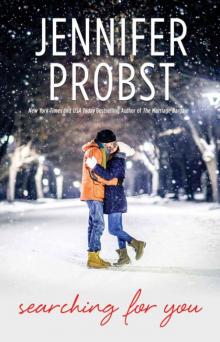 Searching for You
Searching for You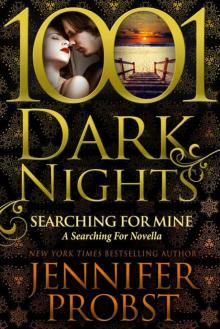 Searching for Mine
Searching for Mine Sex, Lies and Contracts
Sex, Lies and Contracts All the Way
All the Way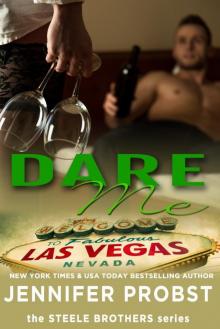 Dare Me
Dare Me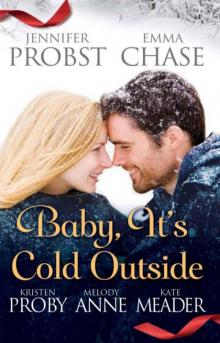 Baby, It's Cold Outside
Baby, It's Cold Outside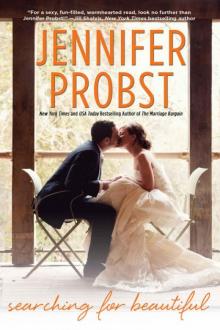 Searching for Beautiful
Searching for Beautiful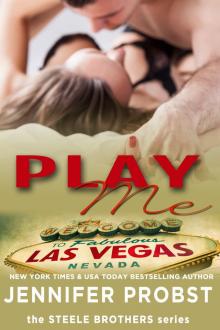 Play Me
Play Me The Holiday Hoax
The Holiday Hoax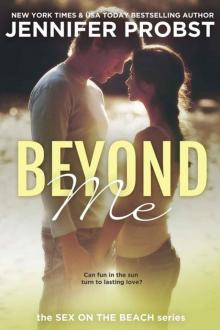 Beyond Me
Beyond Me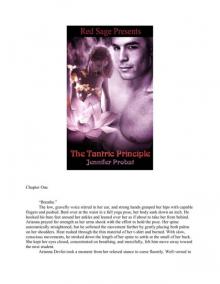 The Tantric Principle
The Tantric Principle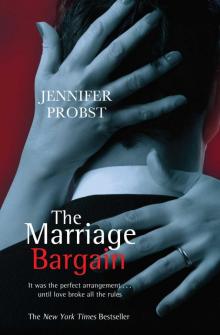 The Marriage Bargain
The Marriage Bargain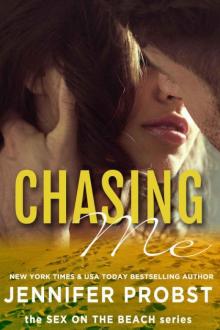 Chasing Me
Chasing Me The Marriage Trap
The Marriage Trap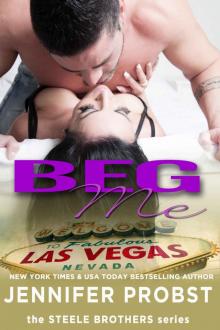 Beg Me
Beg Me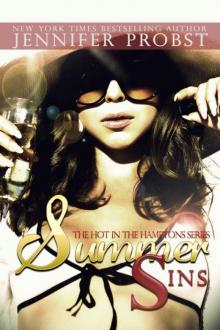 Summer Sins
Summer Sins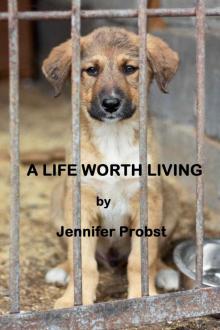 A Life Worth Living
A Life Worth Living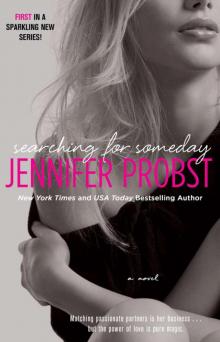 Searching for Someday
Searching for Someday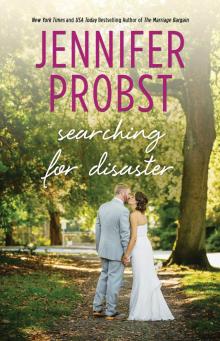 Searching for Disaster
Searching for Disaster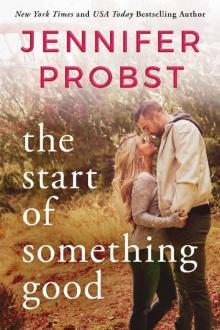 The Start of Something Good
The Start of Something Good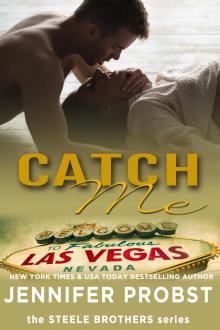 Catch Me
Catch Me The Marriage Mistake
The Marriage Mistake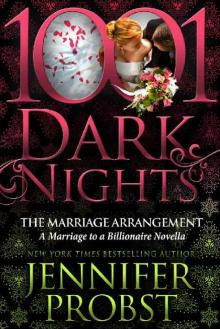 The Marriage Arrangement
The Marriage Arrangement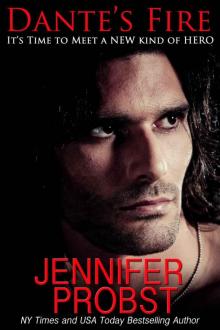 Dante's Fire
Dante's Fire The Book of Spells
The Book of Spells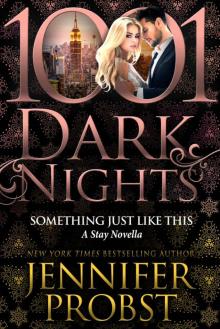 Something Just Like This
Something Just Like This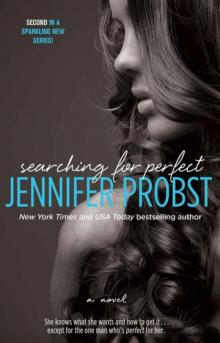 Searching for Perfect
Searching for Perfect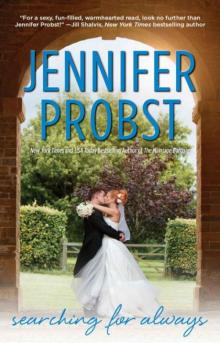 Searching for Always
Searching for Always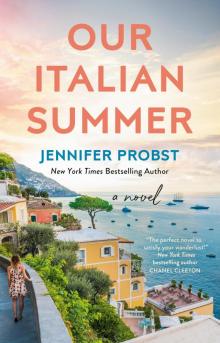 Our Italian Summer
Our Italian Summer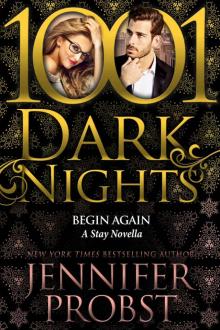 Begin Again: A Stay Novella
Begin Again: A Stay Novella Heart of Steel
Heart of Steel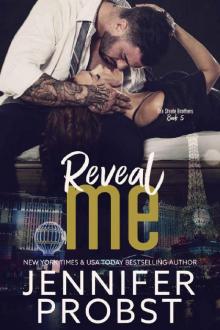 Reveal Me
Reveal Me A Brand New Ending (Stay Book 2)
A Brand New Ending (Stay Book 2)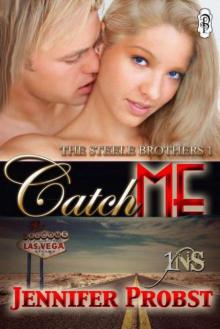 Catch Me sb-1
Catch Me sb-1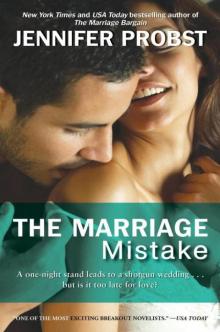 The Marriage Mistake mtab-3
The Marriage Mistake mtab-3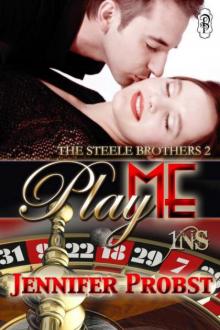 Play Me tsb-2
Play Me tsb-2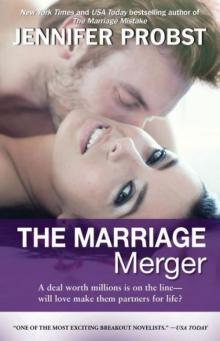 The Marriage Merger mtab-4
The Marriage Merger mtab-4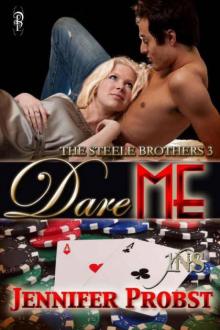 Dare Me sb-3
Dare Me sb-3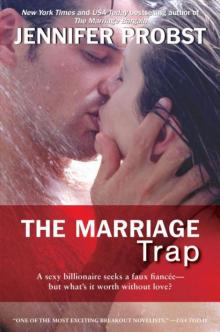 The Marriage Trap mtab-2
The Marriage Trap mtab-2